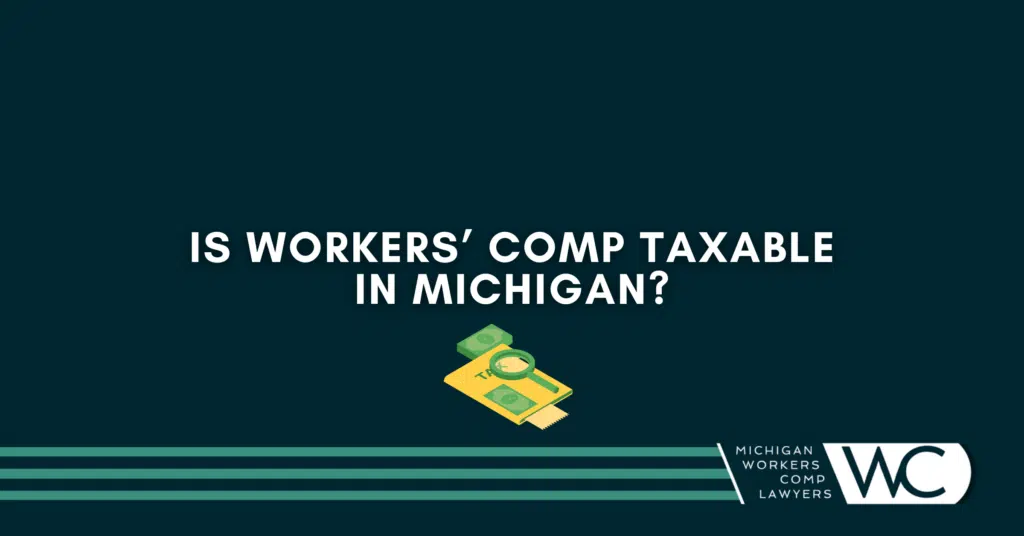
Michigan attorney discusses whether payments under workers’ comp are income tax free.
We get lots of telephone calls and emails with the question: Is workers’ comp taxable income? Many of these callers are in a panic because they have not received a W2 or 1099 from their employer and it is almost Tax Day. Some have even received a lump sum cash settlement and are holding back money to pay the federal government. Are taxes taken out of workers’ comp checks? Is there a worker’s compensation tax form? Keep reading to find out the answers!
The IRS tax filing deadline is April 15, 2024. This means employees must consider how much is owed to the federal government. Here are some tax tips you should know if you received workers’ compensation benefits last year. Please remember that every situation is different, and it is a good idea to speak with a tax professional in your own geographical area.
Is workers’ comp taxable in Michigan?
In Michigan, weekly benefits paid under workers’ comp aren’t taxable income. However, you may still owe taxes on retirement/pension plan contributions/withdrawals or other benefits paid by the employer. This includes S&A, EDB, STD, and LTD.
Watch out for income that was earned while performing work before or after getting hurt on-the-job in any calendar year. This includes periods of time that are considered “light duty” or “favored work.” The same is true if you received sick pay or vacation time in addition to workers’ compensation.
What about a settlement?
Disabled employees can trade workers’ compensation benefits for a lump sum cash payment known as a settlement. Workers’ comp settlements aren’t taxable income in Michigan.
Taking a settlement allows disabled employees to do their own medical and vocational rehabilitation without interference or delay. Settlements are generally calculated based upon future medical needs and years of anticipated disability.
Is there a workers’ compensation tax form?
There is no tax form that will be sent showing how much was paid in workers’ compensation benefits. Disabled employees should not expect to receive a W2 or 1099 unless they performed actual work for the employer during the calendar year. Some employers might forget to provide necessary tax documents when this situation occurs. A simple telephone call to the employer can save a lot of trouble in the future.
Do workers’ comp payments cause other tax problems?
Many of our clients receive both workers’ compensation and Social Security disability benefits. This situation could create an offset where SSDI payments are automatically reduced by the Social Security Administration. Unfortunately, we have seen disabled individuals taxed for the offset amount despite not actually receiving this money. Make sure to speak with an experienced professional should this occur or if you have any other questions regarding if workers’ comp benefits are taxable.
Michigan Workers Comp Lawyers never charges a fee to evaluate a potential case. Our law firm has represented injured and disabled workers exclusively for more than 35 years. Call (844) 316-8033 for a free consultation today.
Related information:
Michigan Workers’ Comp Settlement and Retirement: What You Need To Know


